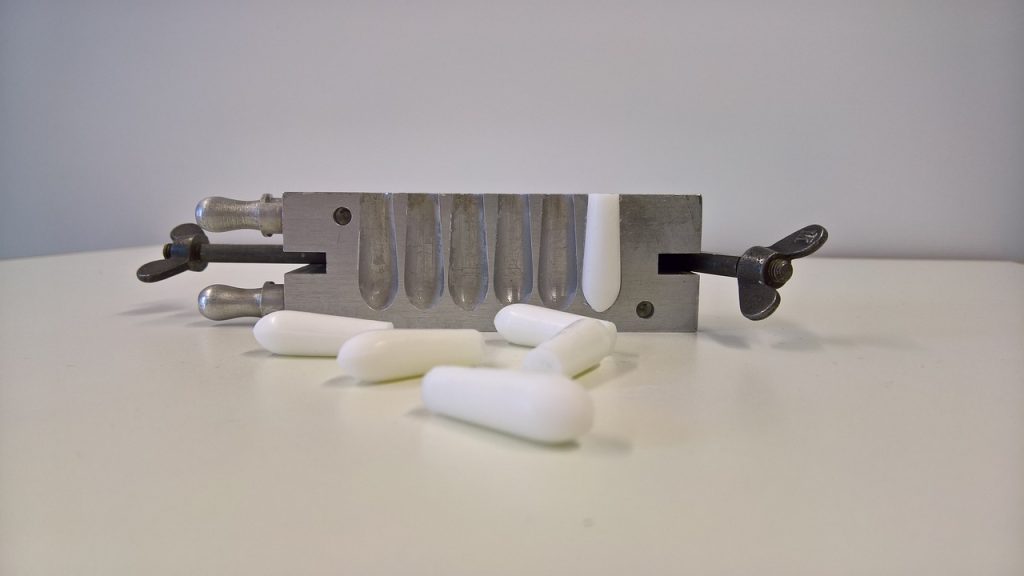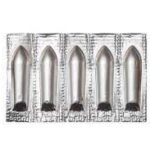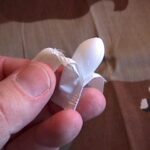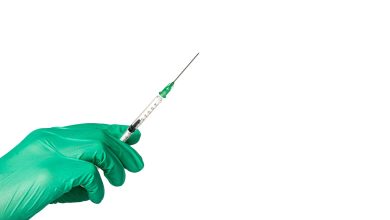How Long Does it Take for a Rectal Suppository to Be Fully Absorbed?

When it comes to managing certain medical conditions or alleviating symptoms, rectal suppositories can be an effective and practical option. They are used for various purposes, including delivering medications for pain relief, treating constipation, and managing hemorrhoids.
However, one common question many people have when using a rectal suppository is: “How long should I wait to poo after inserting it?” Understanding the proper timing is crucial to ensure the medication works effectively and to avoid premature expulsion. This blog article will explore the factors that influence how long you should wait, the types of rectal suppositories, and tips for effective use.

What is a Rectal Suppository?
A rectal suppository is a small, solid, bullet-shaped dosage form designed to be inserted into the rectum. Once inserted, it dissolves or melts, allowing the medication to be absorbed through the rectal mucosa into the bloodstream or to act locally in the rectum. Rectal suppositories can be used for various purposes, such as:
- Pain Relief: For conditions like severe pain, including cancer-related pain.
- Constipation Relief: Suppositories containing laxatives to stimulate bowel movements.
- Hemorrhoid Treatment: To reduce inflammation and pain associated with hemorrhoids.
- Nausea and Vomiting: Suppositories containing antiemetics to control nausea and vomiting.
How Long Does it Take for a Rectal Suppository to be Fully Absorbed?
The absorption time for a rectal suppository can vary depending on the type of medication and its intended use. Generally, for local treatments like those for hemorrhoids or constipation, the medication starts to work relatively quickly, often within 15 to 30 minutes. Laxative suppositories, such as those containing glycerin or bisacodyl, typically induce bowel movements within this timeframe by irritating the rectal mucosa or drawing water into the intestine to stimulate peristalsis.
For medications intended for systemic effects, such as pain relief or anti-nausea treatments, the absorption process may take slightly longer. These suppositories need to dissolve completely and then be absorbed through the rectal mucosa into the bloodstream. This process can take anywhere from 30 minutes to an hour. The exact time can depend on factors such as the formulation of the suppository, the presence of any stool in the rectum, and individual variations in rectal mucosa permeability.
It is crucial to follow specific instructions provided with the medication or given by a healthcare provider to ensure effective absorption. Generally, it is recommended to lie down for at least 15 minutes after insertion to allow the suppository to dissolve and start absorbing without being expelled prematurely. Waiting at least 30 to 60 minutes before having a bowel movement ensures that the medication has had sufficient time to be absorbed and exert its therapeutic effect.
How Long Should I Wait to Poo After Inserting a Rectal Suppository?
The waiting time before having a bowel movement after inserting a rectal suppository depends on several factors:
- Type of Medication:
- Local Action: Suppositories intended for local action, such as those for hemorrhoids, usually need less time to be effective. You might only need to wait 15-30 minutes before having a bowel movement.
- Systemic Action: Suppositories intended for systemic absorption, such as pain relief or antiemetics, typically require more time to dissolve and be absorbed into the bloodstream. Waiting at least 30-60 minutes is advisable to ensure the medication is fully absorbed.
- Formulation:
- Laxative Suppositories: These are designed to stimulate bowel movements. For example, glycerin suppositories may cause a bowel movement within 15-60 minutes. It is best to remain near a bathroom after insertion.
- Medicated Suppositories: These should be retained for at least 30 minutes to ensure proper absorption. Avoid having a bowel movement during this time to prevent the medication from being expelled prematurely.
- Individual Factors:
- Digestive System Sensitivity: Individuals with a sensitive digestive system may experience faster bowel movements. It’s essential to consider personal response and adjust the waiting time accordingly.
- Medical Condition: Certain medical conditions might influence how quickly you need to have a bowel movement. Consult your healthcare provider for personalized advice.
Tips for Effective Use of Rectal Suppositories
To maximize the effectiveness of rectal suppositories and ensure proper absorption, follow these tips:
- Read the Instructions:
- Always read and follow the manufacturer’s instructions or your healthcare provider’s advice regarding the specific suppository you are using. Different medications may have different guidelines for use.
- Preparation:
- Empty Your Bowels: If possible, have a bowel movement before inserting the suppository. This helps ensure the medication remains in place and is not expelled prematurely.
- Wash Your Hands: Thoroughly wash your hands with soap and water before handling the suppository to maintain hygiene and prevent infections.
- Insertion Technique:
- Lie on Your Side: Lie on your left side with your lower leg straight and your upper leg bent towards your chest. This position helps relax the rectal muscles and makes insertion easier.
- Lubricate: Apply a small amount of water-based lubricant to the tip of the suppository to facilitate smooth insertion.
- Insert Gently: Gently insert the suppository into the rectum, pointed end first. Push it in about one inch (2.5 cm) for adults and less for children, as advised by the healthcare provider.
- Remain Still:
- Stay in Position: Remain lying on your side for at least 10-15 minutes to allow the suppository to dissolve and start absorbing. Avoid any sudden movements that may cause the suppository to be expelled.
- Relax: Try to relax and avoid straining during this time to help the suppository stay in place.
- Avoid Bowel Movements:
- Timing: Wait at least 30-60 minutes before having a bowel movement, especially for medicated suppositories intended for systemic absorption. This waiting period ensures the medication is absorbed adequately.
- Hygiene:
- Wash Hands Again: After inserting the suppository, wash your hands thoroughly with soap and water to prevent any contamination or infection.
Common Concerns and FAQs
1. What if I Have a Bowel Movement Too Soon?
If you have a bowel movement too soon after inserting a suppository, there is a risk that the medication will be expelled before it has a chance to be absorbed. In such cases, you may need to insert another suppository. Consult your healthcare provider for guidance.
2. Can I Use a Suppository at Night?
Yes, using a suppository at night can be effective, especially for medications that require prolonged absorption. Insert the suppository just before bedtime and remain lying down to ensure it stays in place.
3. How Often Can I Use Rectal Suppositories?
The frequency of use depends on the specific medication and your medical condition. Always follow the recommended dosage and usage instructions provided by your healthcare provider or the medication packaging.
4. Are There Any Side Effects?
Some people may experience mild side effects such as rectal irritation, discomfort, or a feeling of urgency to have a bowel movement. If you experience severe side effects or allergic reactions, seek medical attention immediately.
5. What If I Have Hemorrhoids?
If you have hemorrhoids, inserting a suppository may be uncomfortable. Apply a water-based lubricant to ease insertion and consult your healthcare provider for personalized advice.
Conclusion
Understanding the proper timing and technique for using rectal suppositories is essential for their effectiveness. The waiting time before having a bowel movement depends on the type of medication, its formulation, and individual factors. For most medicated suppositories, waiting at least 30-60 minutes is recommended to ensure proper absorption. Always follow the instructions provided with the medication and consult your healthcare provider for personalized advice.
By following these guidelines and tips, you can ensure that you use rectal suppositories effectively and safely, maximizing their benefits for your health and well-being.





